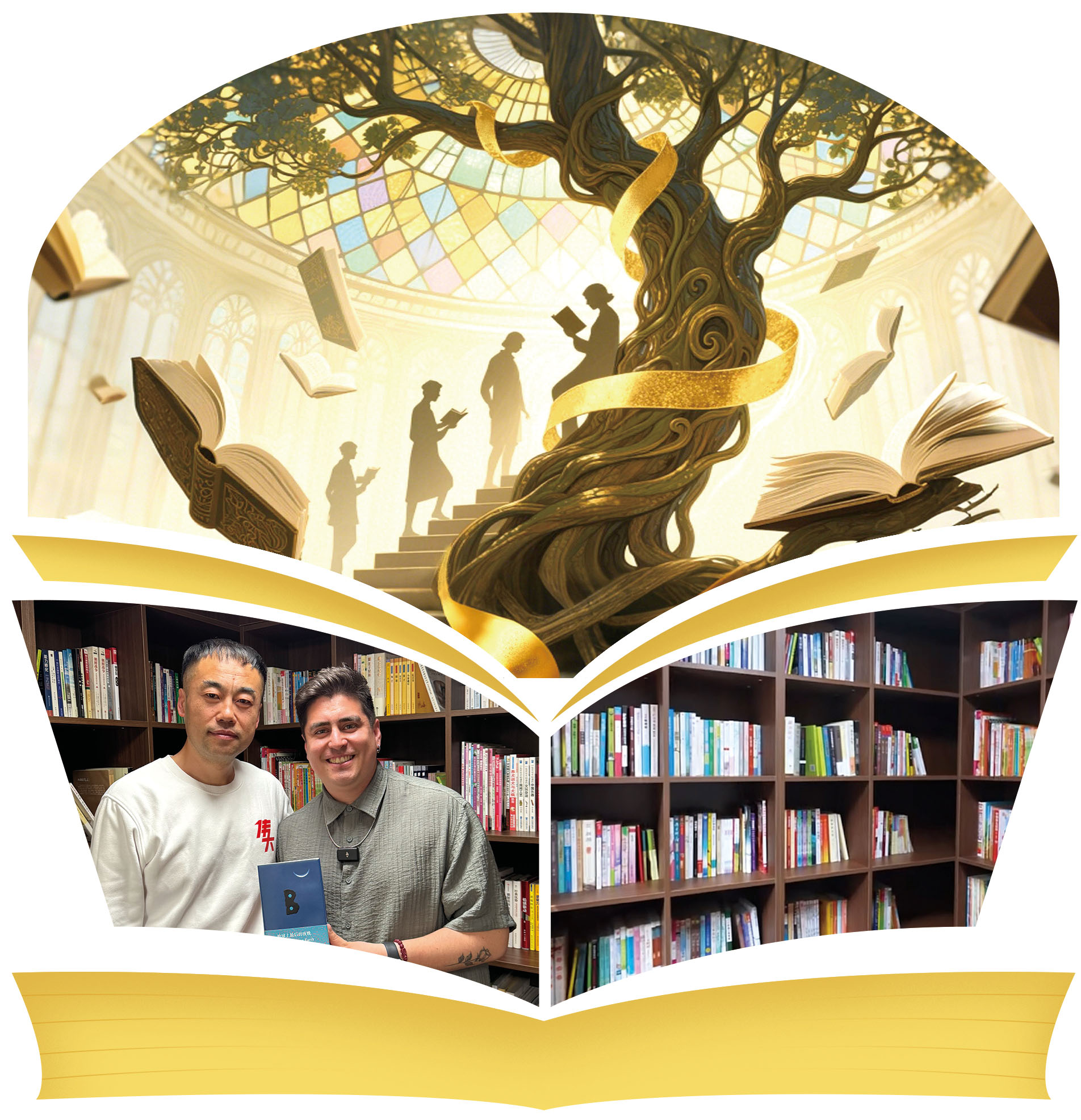A grassroots library in Beijing invites readers to take books freely and pass them on, spreading knowledge far beyond its walls.

Last week, Alvaro Vera Cordovez, a 29-year-old Chilean student at the University of International Business and Economics, visited a unique library in Beijing.
Unlike traditional libraries that require memberships and set time limits for book returns, the "Civilian Mobile Library" Cordovez explored offers books completely free of charge — and without the expectation that they be returned. Readers are invited to take one book every 15 days and are encouraged to pass it on to someone else once they've finished reading.
"I really liked the concept it offers," said Cordovez.
Tucked away in the narrow alleys of Beixiawazi Hutong in Dongcheng district, the library is just seven square meters in size but houses thousands of books across a range of subjects — from business and philosophy to literature and history.
"It might be the smallest library in the world," said Xu Dawei, the founder. "But in another sense, it's also the biggest because the books keep moving. I don't even know where some of them have ended up — some have even made it overseas."
READ MORE: Beijingers unwind in 'hush hour' as community libraries spread
Xu recalled the story of one regular reader who took an English book on Chinese garden history. After finishing it, the reader passed it to a neighbor, who then took it to Germany.
"Just think about it: that book started out in a tiny hutong in Beijing, made its way to someone's home, and then traveled all the way to Europe. The journey is invisible, but powerful," Xu said.
Power in pages
The library is now in its third locale. Founded in 2010, Xu has had to relocate the library several times due to financial challenges.
Being completely nonprofit, the library struggles to cover expenses such as books, rent, and staff salaries. However, Xu has managed to keep it alive for almost 15 years — driven by his belief in the transformative power of books, a belief shaped by his own life experience.
"Books have truly changed my life," Xu said.
Growing up in a rural village near Yantai in Shandong province, most of his classmates stopped their schooling after middle school. "Out of around 20 classmates, only two made it to high school — I was one of them."
Xu studied accounting in college but taught himself about advertising and marketing through reading. This self-education led him to a career in advertising, and he eventually started his own company.
"I've read thousands of books, and my mind is filled with knowledge. Whenever a client presents a problem, I can instantly draw from what I've read and come up with ideas," he said.
It was this career in advertising that provided the financial means for Xu to start the mobile library in 2010. The idea took shape when Xu shared online his list of the 100 books he most recommended with university students, but many of them said they couldn't find those books in their school libraries or local bookstores. So, Xu began mailing his books to readers for free.
Over the course of a year, he sent out nearly 1,000 books and received positive feedback from students. "They all wrote me letters expressing their gratitude, which inspired me to take it further," Xu said — turning his book-gifting effort into a physical space.
For years, Xu has remained committed to his original vision. Even when his company faced financial difficulties, he refused to commercialize the library by turning it into a library-cafe hybrid, selling cultural products, or hosting events like book clubs, which he believes would distract from its welfare mission.
That's why the borrowing process is as simple as it gets — there are no deposits, no need to provide a phone number, and no requirement to join any social media group. "All they have to do is come," Xu said. "Even if they finish a book and decide not to pass it on, at least the book benefited one person and perhaps their family, helping them fall in love with reading."
ALSO READ: Rural library fuels children's passion for knowledge
Cordovez agreed. "I think the meaning of this library is to promote physical reading. It gives everyone the chance to get books for free and helps keep the culture of reading alive," he said.
Looking ahead, Xu is determined to continue his mission, despite the challenges posed by e-books and the fast-paced nature of modern life.
"This is the most meaningful thing I've done in my life," he said. "I want to pass it on to my son so that the library can stay open forever, maintaining its original purpose — a place where anyone can come, take a book, and leave without any formalities or barriers."
Cordovez shared Xu's sentiment: "Today's technology means younger generations don't read as much. But this library tries to keep reading from disappearing. It reminds us how valuable it is."
In an era dominated by AI and digital media, Xu believes it's even more crucial to keep reading to keep up with the changing world.
"Life is full of uncertainties. You can't control the environment, but you can change yourself," he said. "I encourage people to read not just professional books, but also literature, history, and philosophy. These are the things that help you stay strong, resilient, and open-minded."
guojiatong@i21st.cn


